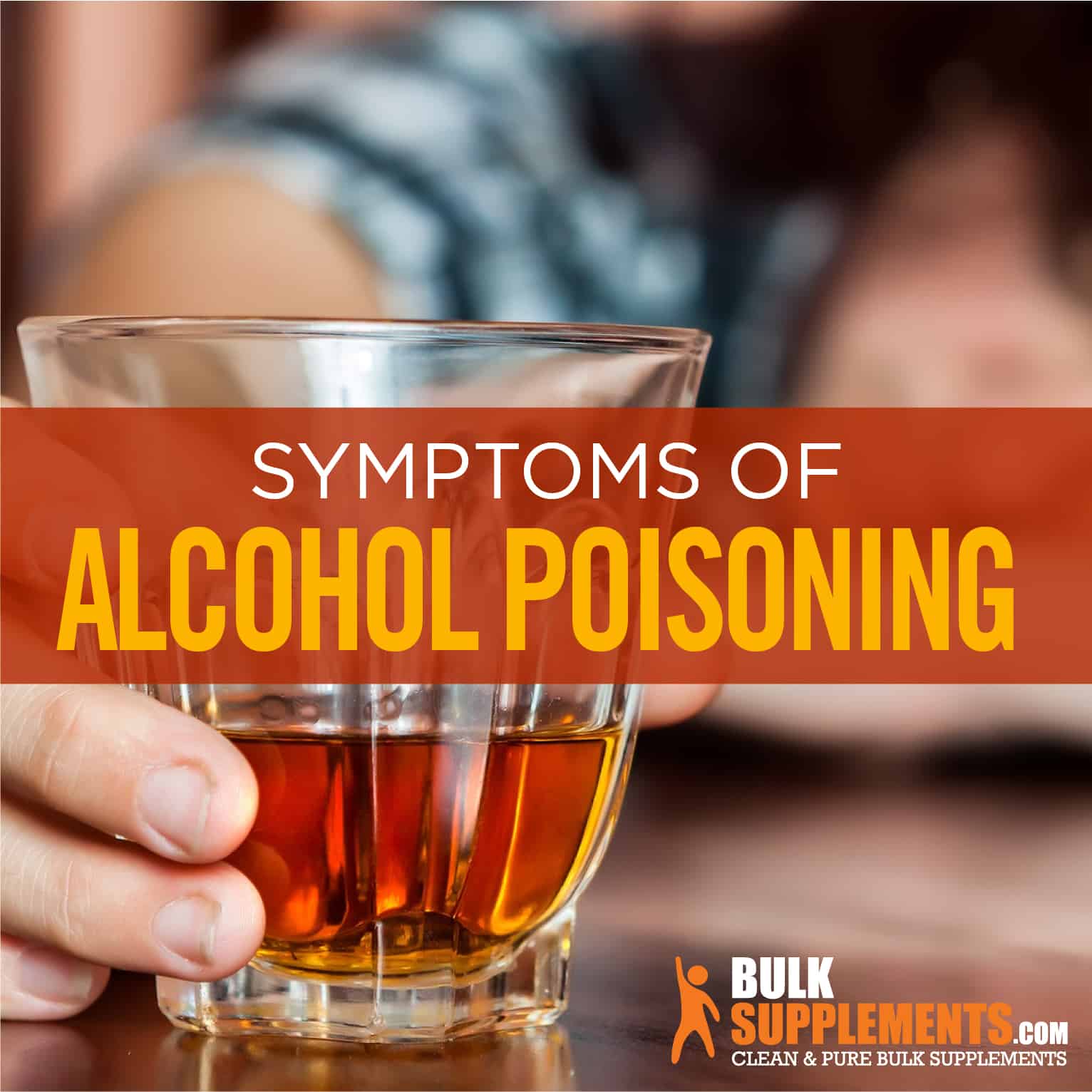What is Alcohol Poisoning?
Alcohol poisoning occurs when you drink too much alcohol in a short period of time (x).
Alcohol poisoning is an extremely serious condition. In the U.S., six people die from alcohol poisoning every day (x). People who have had dangerous amounts of alcohol need immediate emergency medical attention to avoid side effects like permanent brain damage, organ failure and death.
To better understand how alcohol poisoning occurs, let’s first examine the effect alcohol has on your body.
What is Alcohol?
Alcohol is a substance formed when yeast breaks down sugars in foods like barley, potatoes, beets, grapes and apples. These sugars are found in beer, wine and other liquors.
Drinking a small amount of alcohol is usually harmless. But excessive amounts of alcohol have a sedative effect on your central nervous system, and lead to dangerous side effects.
How Does Alcohol Affect Your Body?
Alcohol will start affecting your body almost immediately after you drink it. You could start feeling its effects as early as 15 minutes after your first drink (x). By that time, your bloodstream will have carried it throughout your body. Your kidneys will work hard to excrete the alcohol while your mood changes and speech slurs. Alcohol also impairs your decision-making and coordination (x).
After you have too much to drink, your liver breaks down the alcohol, but only at a rate of one drink per hour. It can quickly become overwhelmed, leading to serious side effects.
How Much Is Too Much?
Your age, weight, health and food intake are just a few factors that determine how alcohol will affect your body. Heavy drinking occurs in men when they consume five or more alcoholic drinks within two hours, and in women when they consume at least four drinks within two hours (x).
Heavy drinking leads to alcohol intoxication. Signs of intoxication include boisterous speech, slow reaction time, motor instability and rash decision-making (x). It could also cause other side effects like nausea, vomiting, and dizziness.
Symptoms of Alcohol Poisoning
So what’s the difference between alcohol intoxication and alcohol poisoning?
While alcohol intoxication is dangerous, it’s temporary and clears up within a day with proper rest and hydration.
Alcohol poisoning, however, is extremely serious. It may be life-threatening and requires immediate medical attention.
In the U.S., someone is considered legally intoxicated when his or her blood-alcohol level is above 0.08 percent (x). A lethal blood-alcohol level is 0.35-0.40 percent for most adults, but serious complications can occur well before then.
Call for help immediately if you notice a friend or a loved one exhibiting these overdose signs (x):
- Vomiting
- Low body temperature
- Unconsciousness
- Irregular or slow breathing
- Seizures
- Confusion
Alcohol can take a long time to leave your body. Depending on the drink, your weight, age, diet and alcohol tolerance, your body may need several hours to clear itself of alcohol.
If someone exhibits even a few of the symptoms of alcohol poisoning, call emergency medical services and stay with the person. Help them sit up or turn them to the side; because alcohol suppresses the gag reflex, a person with alcohol poisoning could choke on their vomit and suffocate (x). If left untreated, fatal dehydration, brain damage and cardiac arrest can occur.
In the hospital, doctors treat alcohol poisoning the following ways:
- Starting an IV to improve hydration
- Opening the airways with a tube
- Inserting a catheter for incontinent patients
- Pumping the stomach
- Monitoring heart functions

Remedies and Supplements for Alcohol poisoning
After drinking too much, you may feel sick or be hungover the next day. You may experience nausea, a headache and fatigue. Often, rest and plenty of water will be your best solutions.
Ginger tea or supplements may help your upset stomach. You can take a half teaspoon of powdered ginger in a glass of water twice a day to help your stomach feel better.
Tomato juice, eggs or coconut water powder may also help you recover. Others swear by bananas, meat or even oatmeal to help them beat hangover symptoms. It will often come down to what sounds good to you, because many foods won’t appeal to you when you feel nauseated.
Keep in mind that a hangover is different from alcohol poisoning. That being said, some supplements are recommended for both, especially thiamin (vitamin B1).
Before taking any vitamins or supplements, or before changing your diet, talk to your doctor first.
The Bottom Line
Alcohol poisoning is a life-threatening condition. If you believe a friend or loved one is in danger, it’s better to be safe than sorry. Call for help immediately–first responders or doctors must be involved. By making others aware of this condition, you could save lives.


